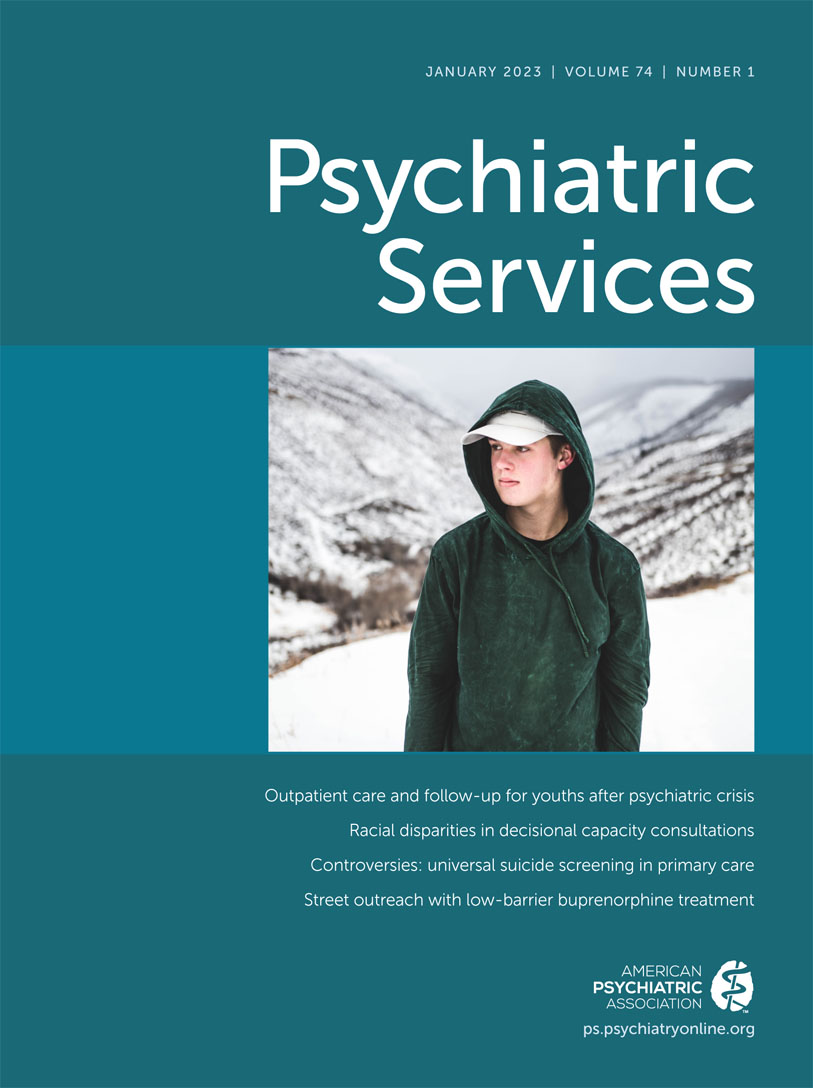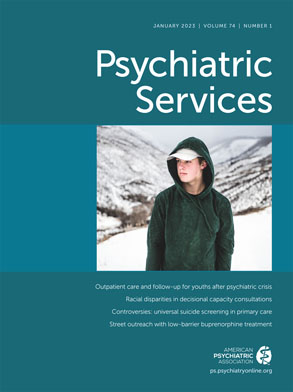Older adults often have complex general medical and mental health needs, functional impairment, and unique psychosocial issues. There are few published adaptations of assertive community treatment (ACT), an evidence-based model for adults with serious mental illness, for geriatric populations with serious mental illness. A novel psychogeriatric ACT team was launched in 2020 through Reconnect, a community mental health agency in Toronto, to serve older adults with high support needs by sustaining independent living, optimizing mental and general health, and improving function, mobility, and quality of life.
Psychogeriatric ACT retains ACT’s core components, including team-based care, regular team meetings, 24-hour crisis management, and provision of medical, psychological, housing, and substance use support, with less focus on vocational support than standard ACT. The team includes a manager, team leader, three case managers (CMs), three nurse CMs, one geriatrician (1 day/week), and one geriatric psychiatrist (2 days/week). One occupational therapist (OT) and two behavioral therapists (BTs) are available for consultation. Typically, CMs have 10–15 clients, and nurse CMs have eight to 10 clients given their additional responsibilities (e.g., injections, medication administration, blood work, and physical examinations).
Referral to the psychogeriatric ACT team occurs via self-referral, physician referral, or community agencies. Admission criteria include age ≥65 years (≥55 if additional eligibility criteria are met), a primary mental illness resulting in impaired community functioning, inability to consistently manage daily living activities or maintain safe living, multiple recent hospitalizations or emergency department visits, and residence within the designated geographic region in Toronto. The current caseload includes 68 clients. For the 91 clients admitted thus far, the mean±SD age was 71±7, and 46% (N=42) were women. The most common psychiatric diagnoses among clients in the current caseload of 68 were schizophrenia (29%, N=20), dementia (16%, N=11), and schizoaffective disorder (15%, N=10), with psychotic disorders being more common than mood disorders. Of the 64 completed needs assessments, the most common unmet needs were difficulties with activities of daily living (28%, N=18), physical disability or illness (20%, N=13), and social isolation (19%, N=12).
Geriatric and psychogeriatric expertise is essential to navigate the complex comorbidities prevalent in this population. Therefore, the team uniquely includes therapists with a geriatric orientation, a geriatrician, and a geriatric psychiatrist. OTs focus on home safety and mobility assessments, facilitate access to gait aids, assess fall risk, and help implement fall prevention strategies. BTs assess challenging behaviors commonly observed in this population and develop behavioral management plans. The geriatrician offers general health expertise for more comprehensive community care. The geriatric psychiatrist provides integrative care for dementia and late-life mental and general medical conditions.
The case example of Ms. O, a 60-year-old woman with a long-standing history of schizophrenia, highlights the unique focus and strengths of the psychogeriatric ACT team. Several of Ms. O’s problems, including dementia, fecal and urinary incontinence, wandering, and elder financial abuse, indicated that her care was beyond the scope and skills of a traditional ACT team. Transfer to the psychogeriatric ACT team resulted in prompt recognition of these difficulties and implementation of effective interventions. Close collaboration among team members and external partnerships, including the Advocacy Centre for the Elderly, was essential to create a safe environment and protect Ms. O from further abuse.
The COVID-19 pandemic created unforeseen challenges to recruitment and care delivery for this population but offered fertile ground for service innovation. Specifically, the shift to virtual care presented barriers for clients with impaired cognition or limited technological access but encouraged creative problem solving. The team developed a hybrid model of care, where CMs provided the technology needed to virtually connect clients to physicians. “Pandemic fatigue” and nursing shortages made maintaining team member consistency difficult but strengthened teamwork and redistribution of accountabilities.
Elderly patients with mental needs beyond those addressed by traditional psychiatric care are a growing part of the population. The COVID-19 pandemic has further drawn attention to the vulnerability of this population, emphasizing the need for service innovation. A model based on ACT that is specifically tailored to this group’s needs and provided in person and remotely offers a promising approach.
Although staffing levels in such programs may seem intense, savings in more acute services and improved quality of life make such interventions worth pursuing.

